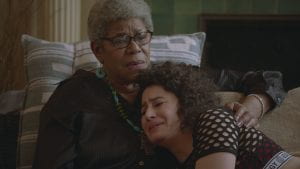Final thoughts, huh?
There is so much wrong with Grey’s Anatomy, but it works. There are so many incidents of events where, in real life, the interns or doctors could have lost their medical license or even been arrested. Patients are given MRIs with metal inside them and wake up right after surgery. Seattle Grace hospital deals with bombs in patients, gunshot wounds, deadly motorcycle races, train crashes, and so much more. Wow, Seattle must be really eventful!
This aside, I had to look for the bad in the show by reading several “15 Facts About” articles. When I watched the show, my only annoyances were small unrealistic hospital details that longtime patients would know. I was so prepared to complain until I realized that this unrealistic yet realistic world works.
At it’s core, Grey’s Anatomy is a medical drama, not a documentary. The truth is stretched in favor of conflicts between doctors and nurses, relationship drama, and friend squabbles. The focus of the show is centered on this as well as the medical aspect. Without some of the unrealistic elements in the show, it would be boring. For example, when Meredith Grey punctures a heart during surgery and her mistake is found out, she would have realistically been punished much more severely than she was. However, a clever statement from Dr. Burke, who had left a towel in a patient years ago, saved her. It’s not what would really happen, but his clever vouch for Meredith interests the viewers and provides an unexpected resolution to the episode’s conflict. Plus, how fun would it be if the show lost it’s title character in Season 1?

RIP Meredith Grey. Almost.
In the end, unless people are in the medical field or experienced patients, little unrealistic things can be easily thrown away for the drama. Who cares if the doctor is present during an MRI if said doctor is considering important relationship decisions? These relationship issues will most likely be an important plot point, not a slightly unrealistic scan.








